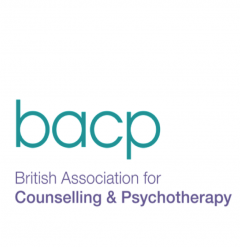Brendan Barnes
Integrative counsellorAbout Me
Online and Face-to-Face Sessions
Psychotherapeutic Counselling is a talking therapy, intended to help people bring about change and enhance wellbeing. It involves regular (usually weekly) sessions of 50 minutes and can be used to help people with a range of emotional and psychological problems of varying degrees of severity.
It is my experience and belief that counselling works. But why consider counselling? When I talk to people, sometimes they bring a particular issue…………but sometimes it is just a sense that things aren’t right. Both the specific and the general are valid start points for counselling.
I offer online counselling and face-to-face counselling in Central London (Farringdon/Barbican area). I am available for short-term counselling of 6-12 sessions and longer-term work. The duration of therapy is open-ended but with regular check-ins to ensure that the work remains relevant to your needs.
I see counselling as a collaboration. My role is to support you in looking at the issues that brought you to counselling. There are no “pre-packed solutions”. We all have our own story and our own ways of finding a way forward. I aim to help people find their own answers.
Through dialogue, we have the possibility to explore your values, beliefs, choices, and assumptions and how you see yourself and how you relate to others. These things shape us and the freedom we have to build our own lives. In the recent past, I have worked with anxiety, stress, depression, anger, and feelings of loss of meaning and direction. Considering alternative perspectives and exploring our behaviours and experiences with another person allows us to reconnect with who we really are and create the conditions for growth.
I am committed to providing a safe, supportive, and non-judgmental environment for these conversations. I believe that counselling works best when there is sufficient trust between the counsellor and the client to allow the counsellor to question, explore and challenge the client’s way of being. That can be uncomfortable but it is by questioning what we think we know about ourselves that insight emerges. I recognize that, alongside space for reflection, sometimes what my clients need is very practical support, guidance and education. If that is what I bring to the process, it is also less than half the story. The work is also about you, your commitment is essential to making change happen and the two of us together finding what you need.
In terms of training, I’m an integrative counsellor. An integrative approach means that resources from different areas of psychotherapy can be drawn on depending on your needs. This can be helpful given the different backgrounds and preferred ways of working that people bring to counselling. Within the wide range of psychotherapies that exist, my own approach is based on the humanistic tradition, with a strong influence from existential and attachment theory. In my post-qualification training, I have focused on better understanding the impact of trauma
In terms of training, I’m an integrative counsellor. An integrative approach means that resources from different areas of psychotherapy can be drawn on depending on your needs. This can be helpful given the different backgrounds and preferred ways of working that people bring to counselling. Within the wide range of psychotherapies that exist, my own approach is based on the humanistic tradition, with a strong influence from existential and attachment theory. Humanistic approaches to counselling emphasise the quality of the relationship between counsellor and client and are underpinned by a belief in the human desire to grow and self-heal. Existentialism focuses on the meaning that we attach to our lives and our responsibility to make the right choices in order to live meaningful lives in the face of anxiety and uncertainty. Attachment theory sees our way of being in the world (sometimes called an internal working model”) as having its roots in experiences in early life.
In my post-qualification training, I have focused on better understanding the impact of trauma.
I hope that this information is useful. and wish you well on your journey
Issues often worked with
Therapy offered
Client groups
Fees
Fees are agreed with clients individually. I recognise that it is not always easy for people to access counselling. Its important that you find a counsellor you feel you can be comfortable with, so I do not charge for the first session as I view this as a chance for us both to see whether we can work well together.
Training and qualifications
BA (Hons) in Psychology
MBA
Diploma in Integrative Counselling
In terms of training, I’m an integrative counsellor. An integrative approach means that resources from different areas of psychotherapy can be drawn on depending on your needs. This can be helpful given the different backgrounds and preferred ways of working that people bring to counselling. Within the wide range of psychotherapies that exist, my own approach is based on the humanistic tradition, with a strong influence from existential and attachment theory. Since qualification, I have continued a self-directed programme of continuing professional development, looking at the following areas:
· Trauma
· Shame
· Attachment
· The impact of my identity in working with clients from different identities in terms of race or gender
· The dialogic process
In terms of background, I studied Psychology at University (1977-80). Following graduation, I worked in the private sector initially in London and, for the last 20 years, in Brussels. In 2016, following a reflection on the values that had guided my career to that point, I commenced training as an Integrative Counsellor with the Minster Centre. My own experience with counselling led me to a conviction about its benefits and its contribution to enabling us to understand and accept ourselves as we are.
Verified professional membership

